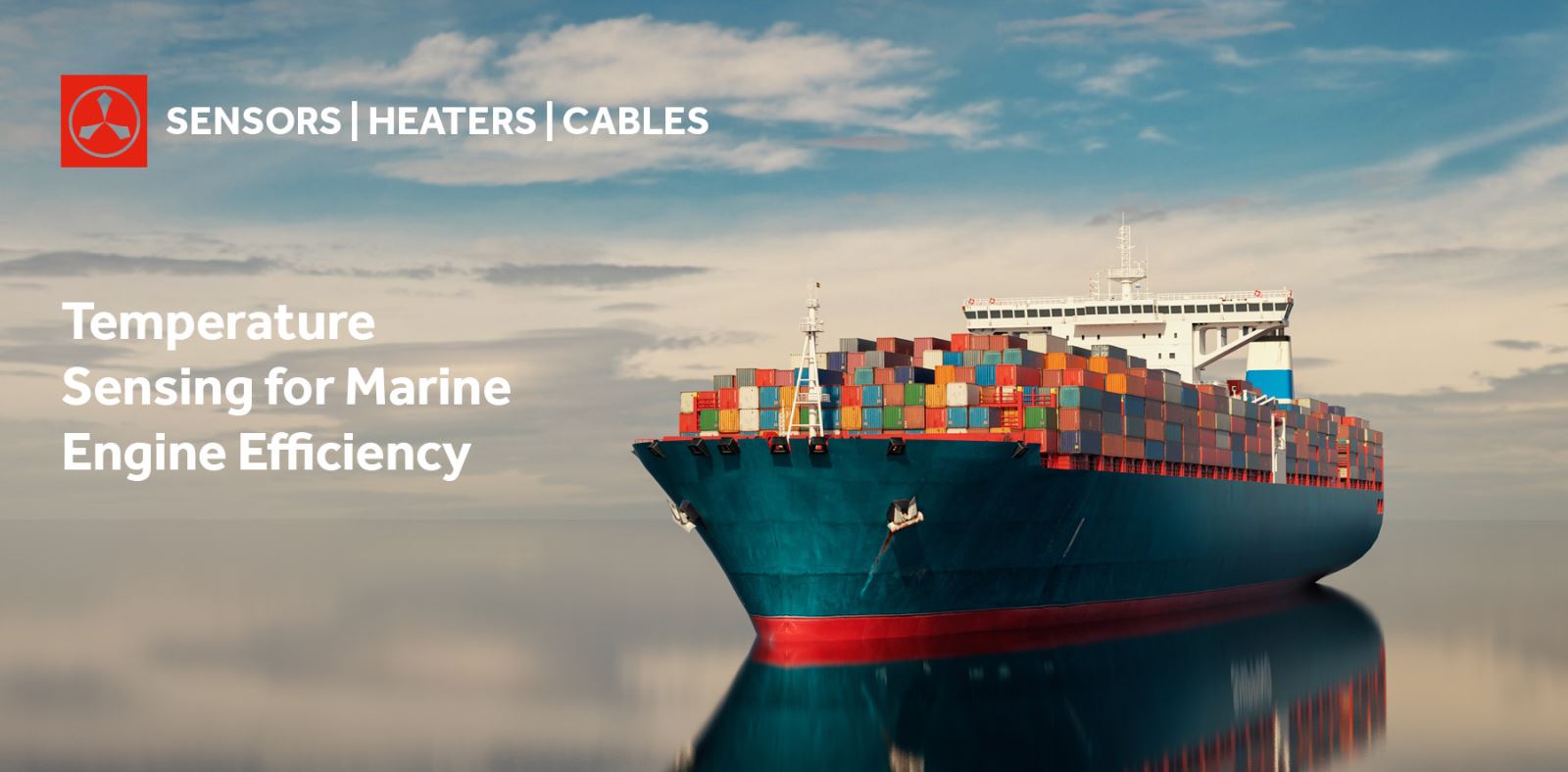Temperature Sensing for Marine Engine Efficiency

The maritime industry is evolving rapidly, driven by the need to reduce emissions and improve fuel efficiency. With stringent IMO (International Maritime Organization) regulations pushing for cleaner, more efficient operations, shipowners and operators must adopt innovative technologies to stay compliant.
One key factor in optimizing marine engine performance? Precision temperature sensing.
The Role of Thermocouples in Marine Engines
At the heart of fuel efficiency and emissions control lies temperature monitoring.
Thermocouples play a crucial role in optimizing fuel combustion in marine engines by ensuring the precise air-to-fuel ratio. This leads to:
-
Maximum engine efficiency – Helping reduce fuel consumption without compromising performance.
-
Lower emissions – Ensuring complete combustion to minimize harmful pollutants.
-
Improved engine lifespan – Preventing overheating and mechanical failures by maintaining optimal operating temperatures.
Monitoring Exhaust Gas Temperatures for Compliance
Regulatory bodies like the IMO have introduced measures such as the Energy Efficiency Existing Ship Index (EEXI) and Carbon Intensity Indicator (CII), making emissions control more important than ever.
High-performance thermocouples are essential for:
-
Monitoring exhaust gas temperatures to ensure compliance with environmental regulations.
-
Detecting potential inefficiencies in the combustion process.
-
Providing real-time data to engine control systems, enabling proactive adjustments for better performance.
Enhancing LNG-Powered Vessel Efficiency
As the industry shifts towards alternative fuels, LNG (Liquefied Natural Gas) is emerging as a cleaner option. However, LNG-powered engines require precise temperature control to ensure efficient combustion and safe operation. Okazaki’s advanced thermocouples are designed to:
-
Monitor cryogenic temperatures in LNG storage and fuel systems.
-
Enhance engine efficiency by optimizing fuel combustion and heat exchange processes.
-
Ensure safety by providing accurate temperature readings in extreme marine environments.
Built for Harsh Marine Environments
Marine applications present some of the most challenging operating conditions, including:
-
Saltwater exposure leading to corrosion.
-
Extreme temperatures from engine combustion and exhaust gases.
-
High mechanical stresses due to continuous vibrations and movements at sea.
Okazaki Manufacturing’s high-performance thermocouples are built to withstand these conditions, ensuring long-term reliability and accuracy. Our sensors provide ship operators with the critical data needed to improve fuel efficiency, comply with regulations, and extend engine lifespan.
The Future of Marine Efficiency
With tightening emissions regulations and the push for sustainability, precision temperature sensing will continue to be a cornerstone of marine innovation. As new propulsion technologies, such as hydrogen and ammonia fuel systems, emerge, advanced sensors will be required to monitor and optimize these next-generation engines.
#MarineTechnology #FuelEfficiency #EmissionsControl #TemperatureSensors #MaritimeInnovation